Nourish and Cleanse: How to Wash 4C Hair Without Shampoo

How To Wash 4C Hair Without Shampoo
Do you have a 4C hair type and want to protect your curls from damage without using shampoo? I do too!
Sometimes, when I’m out of shampoo, I look for alternative methods to wash my 4C hair and in this guide, I’ll be sharing various methods you can use.
Keeping 4C hair healthy requires a special routine that understands its unique qualities. One popular practice is washing without regular shampoo, focusing on keeping the hair moist and preventing it from getting too dry.
This method helps to keep the natural oils that make 4C hair strong. In this article, we’ll guide you through simple ways to wash 4C hair without shampoo. These methods aim to clean your hair effectively while also taking good care of its special characteristics.
Whether you’re experienced in taking care of natural hair or just starting, these techniques aim to keep your hair healthy, hydrated, and looking its best.
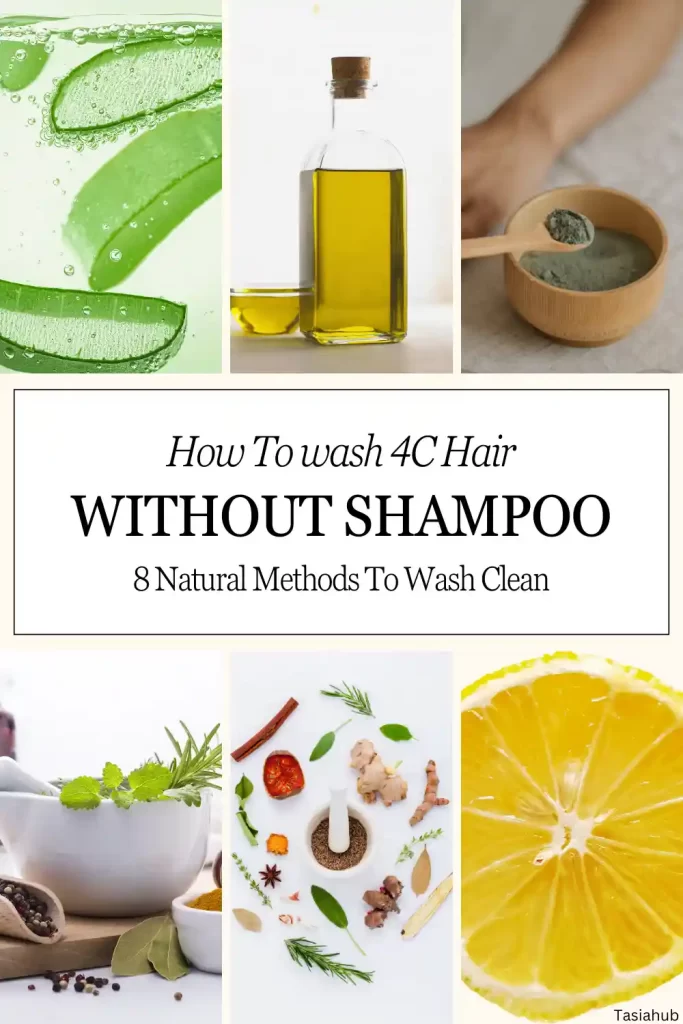
How To Wash 4C Hair Without Shampoo
Let’s take a look at 8 methods to wash 4C hair without traditional shampoo and the benefits of each method. Paying attention to these will help you master the art of how to wash 4C hair without shampoo.
1. Co-Washing (Conditioner-Only Washing)
Co-washing, short for conditioner-only washing, is a hair care method that involves cleansing the hair using conditioner instead of traditional shampoo.

This technique is particularly popular among individuals with curly, coily, or textured hair types, such as 4C hair. Co-washing helps retain the natural oils in the hair while providing moisture, making it a gentler alternative to frequent shampooing, which can strip the hair of its natural oils.
By using a silicone-free conditioner, co-washing effectively removes dirt, product buildup, and impurities from the hair and scalp, leaving it hydrated, soft, and manageable. This method is valued for its ability to maintain moisture levels, enhance curl definition, and contribute to overall hair health, especially for those seeking a balance between cleanliness and moisture retention.
How to Use Co-Wash to Wash 4C Hair
Step 1: Wet Your Hair:
Begin by thoroughly wetting your 4C hair with warm water. This helps to prepare the hair for the co-washing process and makes it easier to distribute the product.
Step 2: Apply Co-Wash Conditioner:
Take a generous amount of co-wash conditioner and apply it to your palms. Distribute the conditioner evenly through your wet hair, focusing on massaging it into the scalp to lift dirt and impurities.
Step 3: Massage and Detangle:
Gently massage the co-wash conditioner into your scalp using circular motions. Take the time to detangle your hair using your fingers or a wide-tooth comb, starting from the tips and working your way up.
Step 4: Allow It to Sit:
For enhanced softening and detangling effects, let the co-wash conditioner sit on your hair for a few minutes. This gives the product time to work its magic and make the hair more manageable.
Step 5: Rinse Thoroughly:
Rinse your 4C hair thoroughly with warm water, ensuring that all the co-wash conditioner is completely washed out. Be diligent to prevent any product buildup.
Benefits of Using Co-Wash for 4C Hair
- Hydration:
Co-washing helps retain natural moisture in 4C hair, preventing excessive dryness often associated with traditional shampoos. - Gentle Cleansing:
Co-washing cleanses the hair without stripping away its natural oils, making it suitable for frequent use and maintaining the health of 4C hair. - Detangling Support:
The conditioning properties of co-wash conditioners assist in detangling 4C hair, making it easier to manage and style. - Reduced Breakage:
By providing moisture and minimizing manipulation during the washing process, co-washing can help reduce breakage and promote healthier strands in 4C hair. - Curl Definition:
Co-washing enhances natural curl patterns in 4C hair, leaving it more defined and showcasing its unique texture.
2. Aloe Vera
Aloe Vera, derived from the succulent plant Aloe barbadensis miller, is a versatile and natural ingredient known for its myriad benefits in hair care.
Rich in vitamins, minerals, and enzymes, Aloe Vera possesses soothing and moisturizing properties that make it an excellent choice for washing hair. Its gel-like consistency helps to cleanse the scalp and hair by gently removing impurities, excess oils, and product buildup.
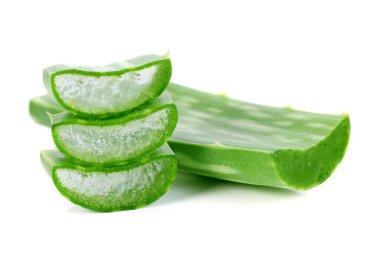
Aloe Vera also promotes a healthy scalp environment, alleviating issues like dandruff and itchiness. Furthermore, its moisturizing qualities contribute to softer, more manageable hair.
Its natural pH balance supports hair health, making Aloe Vera an effective and nourishing option for those looking to clean their hair while maintaining moisture and overall hair well-being.
How to Use Aloe Vera to Wash 4C Hair
Step 1: Obtain Aloe Vera Gel:
Start by obtaining pure aloe vera gel, either directly from an aloe vera plant or a trusted store-bought source. Ensure it is free from additives and fragrances for the best results.
Step 2: Section Your Hair:
Divide your 4C hair into sections to ensure thorough coverage when applying the aloe vera gel. This is particularly important for individuals with tightly coiled or dense hair textures.
Step 3: Apply Aloe Vera Gel:
Apply the aloe vera gel directly to each section of your hair, making sure to cover the scalp and hair strands. Gently massage the gel into your scalp and work it through the length of your hair.
Step 4: Let It Sit for 10-15 Minutes:
Allow the aloe vera gel to sit on your hair for 10-15 minutes. This time allows the aloe vera’s beneficial properties to penetrate the hair and scalp, providing nourishment and cleansing.
Step 5: Rinse Thoroughly:
Rinse your 4C hair thoroughly with lukewarm water. Ensure that all traces of the aloe vera gel are washed away.
Benefits of Using Aloe Vera for 4C Hair:
- Scalp Health:
Aloe vera has soothing properties that promote a healthy scalp, reducing issues such as dandruff and itchiness in 4C hair. - Moisture Retention:
Aloe vera is a natural humectant, that helps to retain moisture in the hair. This is particularly beneficial for preventing dryness in 4C hair. - Gentle Cleansing:
Aloe vera provides gentle cleansing, removing impurities and excess oils without stripping the hair of its natural moisture. - Natural Detangler:
The gel’s slippery consistency can act as a natural detangler, making it easier to manage and style your 4C hair after washing. - Nutrient Boost:
Aloe vera is rich in vitamins, minerals, and enzymes, providing a nutrient boost to 4C hair and contributing to overall hair health and vitality.
3. Apple Cider Vinegar
Apple Cider Vinegar (ACV) is a popular natural ingredient renowned for its numerous benefits in hair care. When used to wash hair, ACV acts as a clarifying and conditioning agent.
Its acidic nature helps to balance the pH levels of the scalp, promoting a healthy environment for hair growth. ACV is effective in removing product residue, excess oils, and impurities from the hair and scalp, making it an excellent alternative to traditional shampoos.
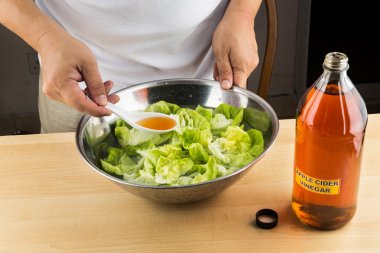
Additionally, it possesses antimicrobial properties, which can be beneficial for those dealing with scalp issues. The acetic acid in ACV contributes to cuticle smoothening, resulting in shinier and more manageable hair.
As a natural and cost-effective solution, Apple Cider Vinegar is valued for its ability to cleanse the hair gently while imparting a host of nourishing benefits.
How to Use Apple Cider Vinegar to Wash 4C Hair
Step 1: Mix the Apple Cider Vinegar Solution:
In a container, mix one part raw, unfiltered apple cider vinegar with three parts water. This creates a diluted solution suitable for washing your 4C hair.
Step 2: Section Your Hair:
Divide your 4C hair into sections to ensure thorough application of the apple cider vinegar solution. This is particularly beneficial for those with densely coiled or tightly packed hair.
Step 3: Apply the Solution:
Pour the diluted apple cider vinegar solution over each section of your hair, ensuring it reaches both the scalp and hair strands. Gently massage the solution into your scalp, allowing it to distribute evenly.
Step 4: Let It Sit for 5-10 Minutes:
Allow the apple cider vinegar solution to sit on your hair for 5-10 minutes. This time allows the vinegar to break down impurities, residue, and excess oils.
Step 5: Rinse Thoroughly:
Rinse your 4C hair thoroughly with cool water. Ensure that all traces of the apple cider vinegar solution are washed away.
Benefits of Using Apple Cider Vinegar for 4C Hair:
- pH Balance Restoration:
Apple cider vinegar helps restore the natural pH balance of the scalp, creating an environment conducive to healthy hair growth for 4C hair. - Shine Enhancement:
The acidic nature of apple cider vinegar smoothes the hair cuticles, enhancing natural shine and leaving 4C hair looking lustrous. - Clarifying Action:
Apple cider vinegar acts as a clarifying agent, effectively removing product buildup, residue, and impurities from the hair and scalp. - Scalp Health:
The antimicrobial properties of apple cider vinegar contribute to a healthier scalp, reducing issues such as dandruff and itchiness. - Natural Detangler:
The acidity of the vinegar can serve as a natural detangler, making it easier to manage and style your 4C hair after washing.
4. Clay Masks
Clay masks, utilizing natural clays such as bentonite or rhassoul, have become a popular choice for hair cleansing due to their unique properties.
These clays are rich in minerals and possess absorbent qualities, making them effective in drawing out impurities, excess oils, and product buildup from the hair and scalp.
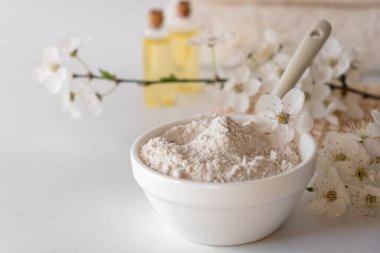
When used to wash hair, clay masks provide a deep-cleaning action without stripping away essential moisture. The porous structure of the clays allows them to absorb and remove toxins and debris, leaving the hair revitalized and refreshed.
Furthermore, clay masks can promote a healthy scalp by balancing oil production and soothing irritations. Their versatility makes them suitable for various hair types, especially those prone to excess oil or lacking volume.
Clay masks contribute to a holistic hair care routine, offering a natural and nourishing way to cleanse, purify, and maintain optimal scalp and hair health.
How to Use Clay Mask to Wash 4C Hair
Step 1: Choose Your Clay:
Select a natural clay suitable for your 4C hair, such as bentonite or rhassoul clay. Mix the clay with water or aloe vera juice to create a smooth paste.
Step 2: Section Your Hair:
Divide your 4C hair into manageable sections to ensure thorough application of the clay mask. This is especially crucial for those with dense or tightly coiled hair.
Step 3: Apply the Clay Mask:
Generously apply the clay mask to each section of your hair, focusing on the scalp and working it through the length of your hair. Ensure even distribution for effective cleansing.
Step 4: Let It Sit for 15-30 Minutes:
Allow the clay mask to sit on your hair for 15-30 minutes. This time allows the clay to absorb impurities and excess oils while promoting a deep cleansing action.
Step 5: Rinse Thoroughly:
Rinse your 4C hair thoroughly with lukewarm water, making sure to remove all traces of the clay mask. You may need to massage your scalp and hair to ensure complete removal.
Benefits of Using Clay Mask for 4C Hair:
- Impurity Removal:
Clay masks effectively draw out impurities, excess oils, and product buildup from the hair and scalp, leaving your 4C hair feeling clean and revitalized. - Deep Cleansing Action:
The clay provides a deep cleansing action without stripping away essential moisture, promoting a healthier scalp and hair. - Natural Detox:
Using a clay mask serves as a natural detox for your 4C hair, helping to maintain a clean and balanced environment. - Enhanced Curl Definition:
The removal of impurities and residue can contribute to enhanced curl definition in 4C hair, allowing natural patterns to shine through. - Versatility:
Clays are versatile and can be tailored to your specific needs. Whether you’re addressing excess oil, dryness, or product buildup, clay masks offer a customizable solution for 4C hair care.
5. Herbal Infusions
Herbal infusions, concocted from a variety of beneficial herbs like chamomile, lavender, or rosemary, offer a natural and gentle alternative for washing hair.
When used to cleanse the hair, these infusions impart a range of therapeutic benefits. Chamomile is known for its soothing properties, lavender for its calming and antimicrobial effects, and rosemary for its stimulating impact on hair growth.

The herbal infusion not only cleanses the hair by removing impurities but also provides a refreshing and aromatic experience. It nourishes the scalp and hair with herbal goodness, contributing to a healthy and balanced environment.
Additionally, herbal infusions can enhance the overall well-being of the hair, making it a popular choice for those seeking a holistic and nature-inspired approach to hair care.
How to Use Herbal Infusions to Wash 4C Hair
Step 1: Prepare the Herbal Infusion:
Select your preferred herbs such as chamomile, lavender, or rosemary, and steep them in hot water to create a potent herbal infusion. Allow the mixture to cool before use.
Step 2: Section Your Hair:
Divide your 4C hair into manageable sections to ensure an even application of the herbal infusion. This helps to cover the entire scalp and hair strands effectively.
Step 3: Apply the Herbal Infusion:
Pour the herbal infusion over each section of your hair, ensuring complete saturation. You can use a spray bottle for a more even distribution. Massage the infusion into your scalp, working it through the length of your hair.
Step 4: Let It Sit for 10-15 Minutes:
Allow the herbal infusion to sit on your hair for 10-15 minutes. This allows the beneficial properties of the herbs to penetrate the hair and scalp, promoting a healthy and refreshed feeling.
Step 5: Rinse Thoroughly:
Rinse your 4C hair thoroughly with lukewarm water. Ensure that all traces of the herbal infusion are washed out, leaving your hair clean and revitalized.
Benefits of Using Herbal Infusions for 4C Hair:
- Scalp Health:
Herbal infusions, depending on the herbs used, can have antimicrobial and soothing properties that promote a healthy scalp environment. - Aromatic Experience:
The infusion process provides an aromatic experience, offering a natural and pleasant scent during the hair-washing routine. - Gentle Cleansing:
Herbal infusions offer gentle cleansing, making them suitable for 4C hair that may be more delicate and prone to dryness. - Customizable:
You can tailor the herbal infusion based on your specific hair needs, choosing herbs that address concerns such as dandruff, itchiness, or lack of moisture. - Nourishment:
The infusion delivers vitamins and minerals from the herbs, providing nourishment to your 4C hair and contributing to overall hair health.
6. DIY Cleansing Conditioner
DIY cleansing conditioner, a blend of your regular conditioner with aloe vera gel and tea tree oil, is a customizable and nourishing solution for washing hair.
By combining a conditioner with aloe vera and tea tree oil, you create a mixture that not only cleanses but also moisturizes and soothes the scalp.
Aloe vera, known for its hydrating properties, helps to retain moisture in the hair, while tea tree oil offers antibacterial benefits, addressing scalp issues.
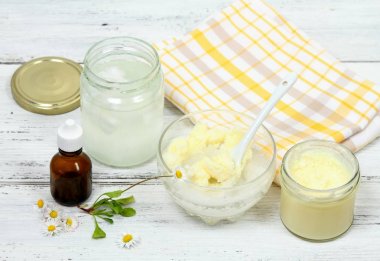
This DIY approach ensures a gentle cleansing experience, maintaining the natural oils in the hair that traditional shampoos might strip away. It provides a dual action of cleaning and conditioning, leaving the hair feeling refreshed, hydrated, and subtly scented with the natural goodness of aloe vera and tea tree oil.
This DIY cleansing conditioner is a cost-effective and customizable option for those seeking a personalized and effective hair-washing method.
How to Use DIY Cleansing Conditioner to Wash 4C Hair
Step 1: Prepare the DIY Cleansing Conditioner:
Create your DIY cleansing conditioner by mixing your regular conditioner with aloe vera gel and a few drops of tea tree oil. Adjust the quantities based on the length and thickness of your 4C hair.
Step 2: Section Your Hair:
Divide your 4C hair into sections to ensure thorough coverage during the application of the DIY cleansing conditioner. This is particularly important for those with dense or tightly coiled hair.
Step 3: Apply the DIY Cleansing Conditioner:
Apply the mixture generously to each section of your hair, ensuring that both the scalp and hair strands are well-saturated. Gently massage the conditioner into your scalp and work it through the length of your hair.
Step 4: Let It Sit for a Few Minutes:
Allow the DIY cleansing conditioner to sit on your hair for a few minutes. This gives the aloe vera and tea tree oil time to nourish and cleanse your scalp.
Step 5: Rinse Thoroughly:
Rinse your 4C hair thoroughly with lukewarm water. Ensure that all traces of the DIY cleansing conditioner are washed out, leaving your hair clean and refreshed.
Benefits of Using DIY Cleansing Conditioner for 4C Hair:
- Cleansing and Conditioning:
The DIY cleansing conditioner provides a dual action of cleansing and conditioning, eliminating the need for a separate shampoo. It helps clean your hair while maintaining its natural moisture. - Aloe Vera Hydration:
Aloe vera gel in the mixture hydrates and moisturizes your 4C hair, preventing dryness and promoting overall hair health. - Tea Tree Oil Benefits:
The addition of tea tree oil brings antibacterial properties, which can be beneficial for maintaining a healthy scalp and addressing scalp issues like dandruff. - Gentle on 4C Hair:
This DIY cleansing conditioner is particularly gentle on 4C hair, which tends to be more delicate. It helps maintain the natural integrity and moisture balance of your hair. - Customizable:
You can adjust the ingredients to suit your preferences and the specific needs of your 4C hair, offering a customizable and effective cleansing solution.
7. Witch Hazel Rinse
Witch hazel, derived from the Hamamelis virginiana plant, is a natural astringent known for its soothing and cleansing properties.
When used as a hair rinse, witch hazel provides a gentle yet effective method for washing the hair. Its astringent nature helps to tone the scalp, controlling excess oil production without causing excessive dryness.
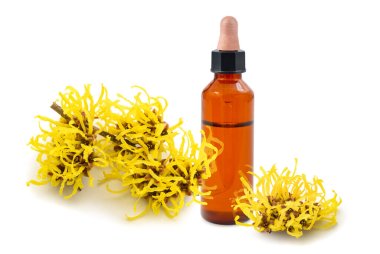
Witch hazel rinse effectively removes residue and impurities, leaving the hair feeling clean and refreshed. Additionally, it can be particularly beneficial for individuals with oily scalps or those seeking a mild alternative to traditional shampoos.
This natural solution contributes to a balanced and clarified scalp environment while maintaining the hair’s natural moisture balance, making it a valuable option for those looking to wash their hair with a gentle touch.
How to Use Witch Hazel Rinse to Wash 4C Hair
Step 1: Dilute the Witch Hazel:
Start by diluting witch hazel with water. Mix equal parts of witch hazel and water to create a gentle solution suitable for your 4C hair. You can adjust the ratio based on your preference and hair needs.
Step 2: Section Your Hair:
Divide your 4C hair into manageable sections to ensure even application of the witch hazel rinse. This is especially helpful for thorough coverage, particularly if you have a dense or tightly coiled hair texture.
Step 3: Apply the Witch Hazel Rinse:
Pour the diluted witch hazel solution over each section of your hair, ensuring it reaches the scalp and saturates the strands. Gently massage the solution into your scalp, allowing it to work through the hair.
Step 4: Massage and Leave-In:
Massage your scalp for a few minutes to enhance the circulation and absorption of the witch hazel. Allow the solution to remain on your hair for a brief period, allowing the witch hazel’s astringent properties to take effect.
Step 5: Rinse Thoroughly:
After the desired time has passed, rinse your 4C hair thoroughly with cool water. Ensure that all traces of the witch hazel solution are removed from your hair and scalp.
Benefits of Using Witch Hazel Rinse for 4C Hair:
- Balances Scalp Oil:
Witch hazel’s astringent properties help balance oil production on the scalp, making it beneficial for those with 4C hair prone to excess oiliness. - Clarifying Action:
The rinse effectively removes residue, impurities, and excess oils, providing a clarifying effect that leaves the hair feeling clean and refreshed. - Tones the Scalp:
Witch hazel acts as a natural toner for the scalp, promoting a balanced and healthy environment for hair growth. - Soothing Sensation:
The rinse can have a soothing effect on the scalp, alleviating any irritations or itchiness that may be present. - Versatile Use:
Witch hazel rinse is versatile and suitable for various hair types, making it a convenient and gentle option for 4C hair care.
8. African Black soaps
African Black Soap, traditionally crafted from plantain skins, cocoa pods, shea butter, and various natural oils, is a versatile and time-honored product renowned for its cleansing properties.
When used to wash hair, African black soap provides a gentle yet effective solution. Rich in natural ingredients, it helps remove dirt, excess oils, and product buildup from the hair and scalp without stripping away essential moisture.
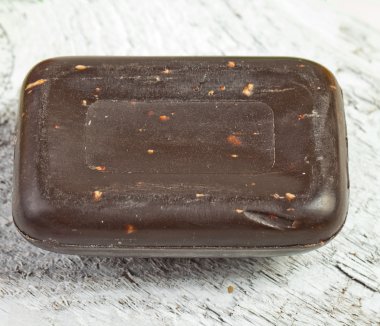
The soap’s natural composition, including shea butter for hydration and plant-based ingredients for cleansing, makes it suitable for various hair types. It also contains vitamins and minerals that contribute to overall hair health.
African black soap provides a natural and nourishing alternative to commercial shampoos, offering a holistic approach to cleansing while preserving the hair’s natural integrity and moisture balance.
How to Use African Black Soap to Wash 4C Hair
Step 1: Break Down the Soap
Start by breaking down a small portion of the African Black Soap into smaller pieces. This aids in easier dissolution and ensures a manageable amount for your hair-washing session.
Step 2: Dissolve in Warm Water
Place the broken pieces of African Black Soap into a container and pour warm water over them. Allow the soap to dissolve, creating a liquid solution. Stir gently until you achieve a smooth consistency.
Step 3: Section Your Hair
Divide your 4C hair into sections to ensure thorough application of the African Black Soap solution. This is particularly important for those with dense and tightly coiled hair.
Step 4: Apply the Solution
Pour the dissolved African Black Soap over each section of your hair, making sure to saturate both the scalp and hair strands. Massage the solution into your scalp, working it through the length of your hair to cleanse effectively.
Step 5: Let It Sit
Allow the soap solution to sit on your hair for a few minutes. This gives the natural ingredients in the African Black Soap time to break down impurities and product buildup.
Step 6: Rinse Thoroughly
Rinse your hair thoroughly with lukewarm water. Ensure that all soap residue is removed from your hair, and the water runs clear.
Benefits of Using African Black Soap for 4C Hair:
- Gentle Cleansing: African Black Soap provides a mild yet effective cleansing action, removing impurities without harsh chemicals that can strip the hair.
- Moisture Retention: The shea butter content in African Black Soap helps moisturize and hydrate 4C hair, preventing excessive dryness during the cleansing process.
- Scalp Health: Natural ingredients in the soap, such as plantain skins and cocoa pods, contribute to a healthier scalp, reducing issues like dandruff and itchiness.
- Vitamins and Minerals: African Black Soap contains vitamins A and E, as well as minerals, promoting overall hair health and vitality.
- Versatility: Suitable for various hair types, African Black Soap is particularly beneficial for 4C hair, providing a holistic approach to cleansing while preserving natural moisture and texture.
These comprehensive steps for different washing methods offer detailed insights into the application and benefits of each technique, ensuring an effective and tailored approach to caring for 4C hair without traditional shampoo.
Conclusion
Mastering the art of how to wash 4C hair without shampoo unveils a realm of gentle and nourishing techniques tailored to the specific needs of this unique hair type.
From the clarifying effects of apple cider vinegar to the soothing properties of aloe vera and the detoxifying benefits of clay masks, each method offers a distinct approach to cleansing without compromising the integrity of 4C hair.
Whether you opt for co-washing, herbal infusions, or DIY cleansing conditioners, the emphasis is on preserving moisture, promoting scalp health, and enhancing the natural beauty of your curls.
Embracing these alternative washing methods not only contributes to a healthier hair care routine but also empowers individuals with 4C hair to celebrate their texture and maintain its vitality without the reliance on traditional shampoos.
Discovering what works best for your 4C hair is a journey of self-care, and with these diverse methods, you can embark on a path that celebrates the richness and resilience of your hair without compromising its natural beauty.

